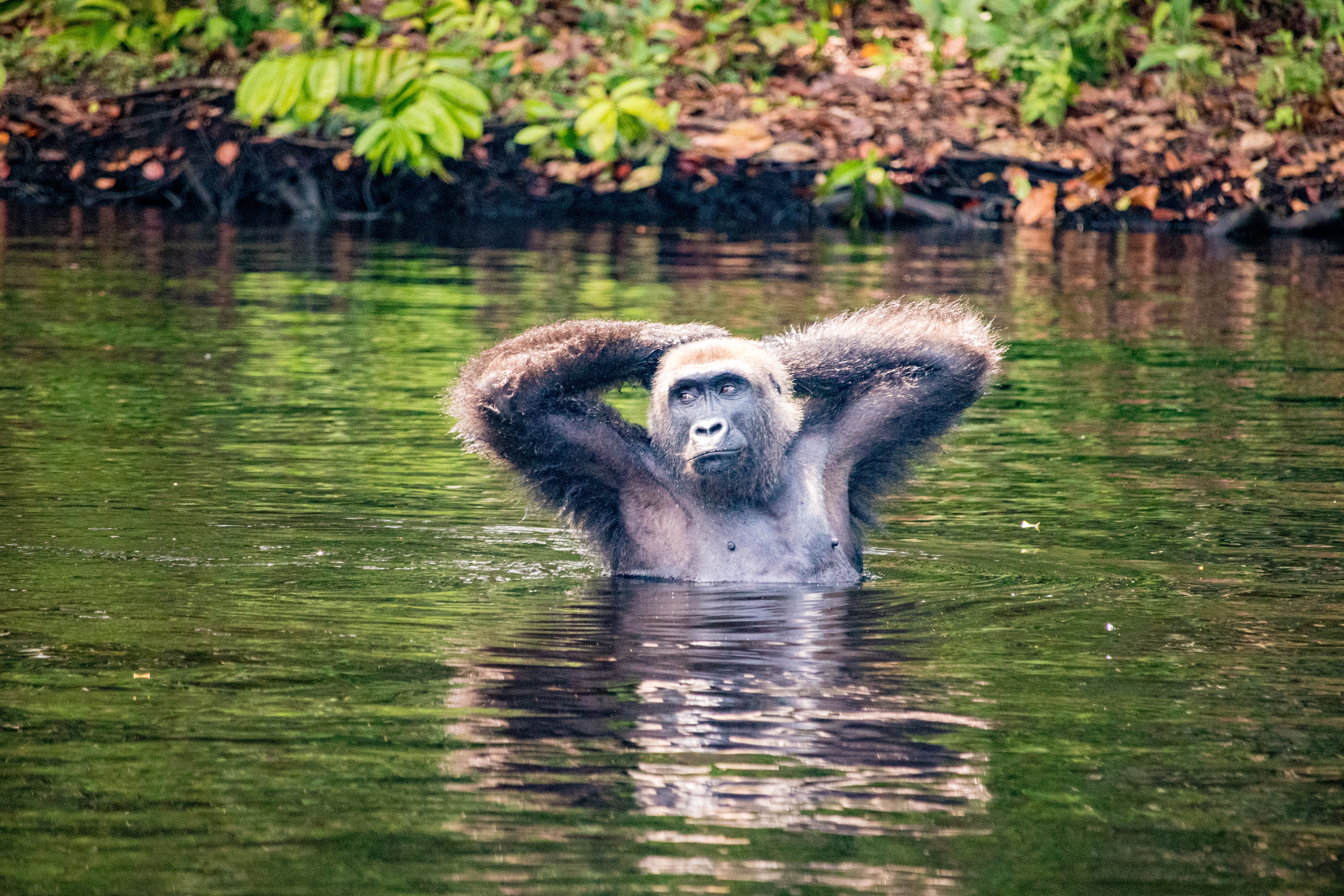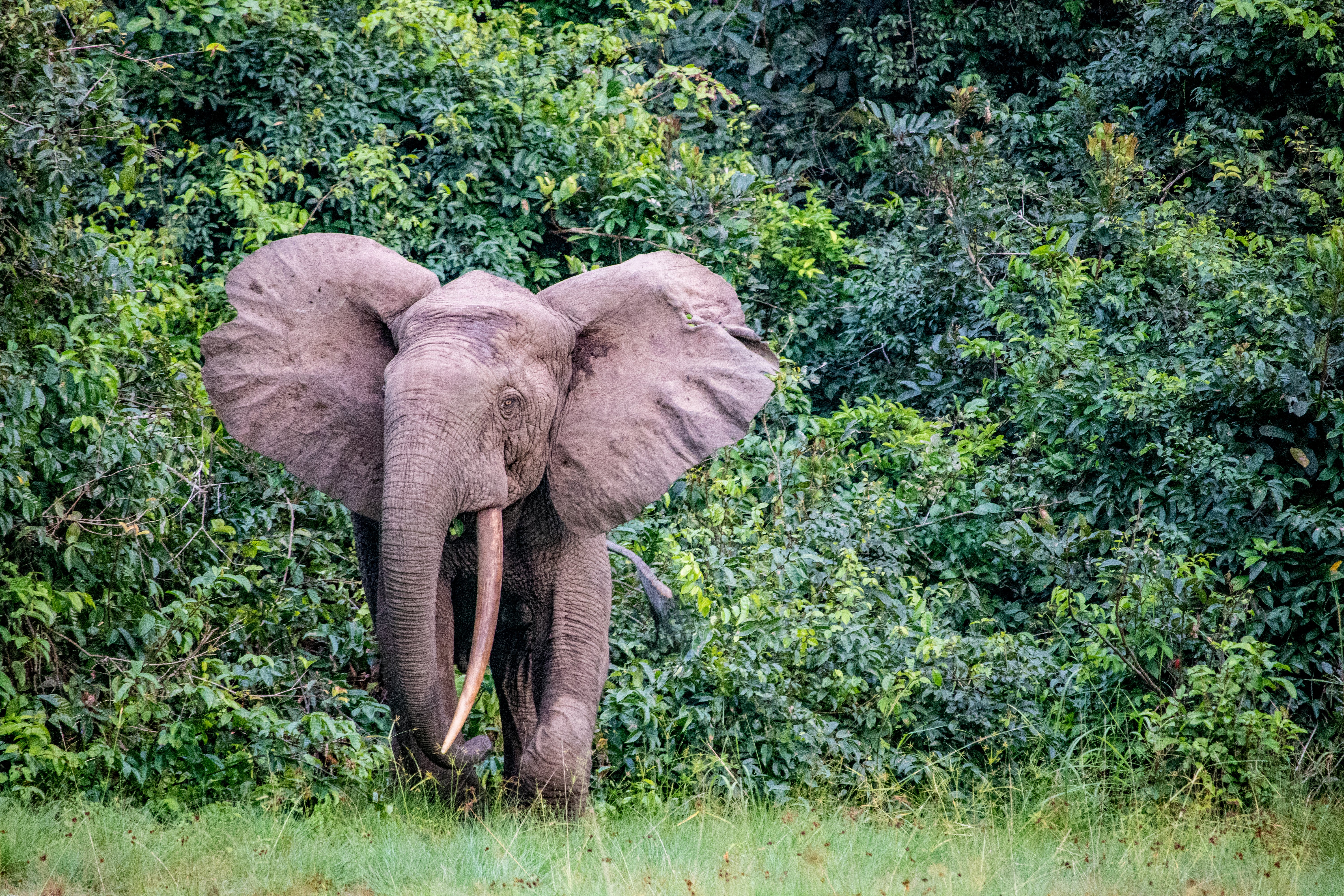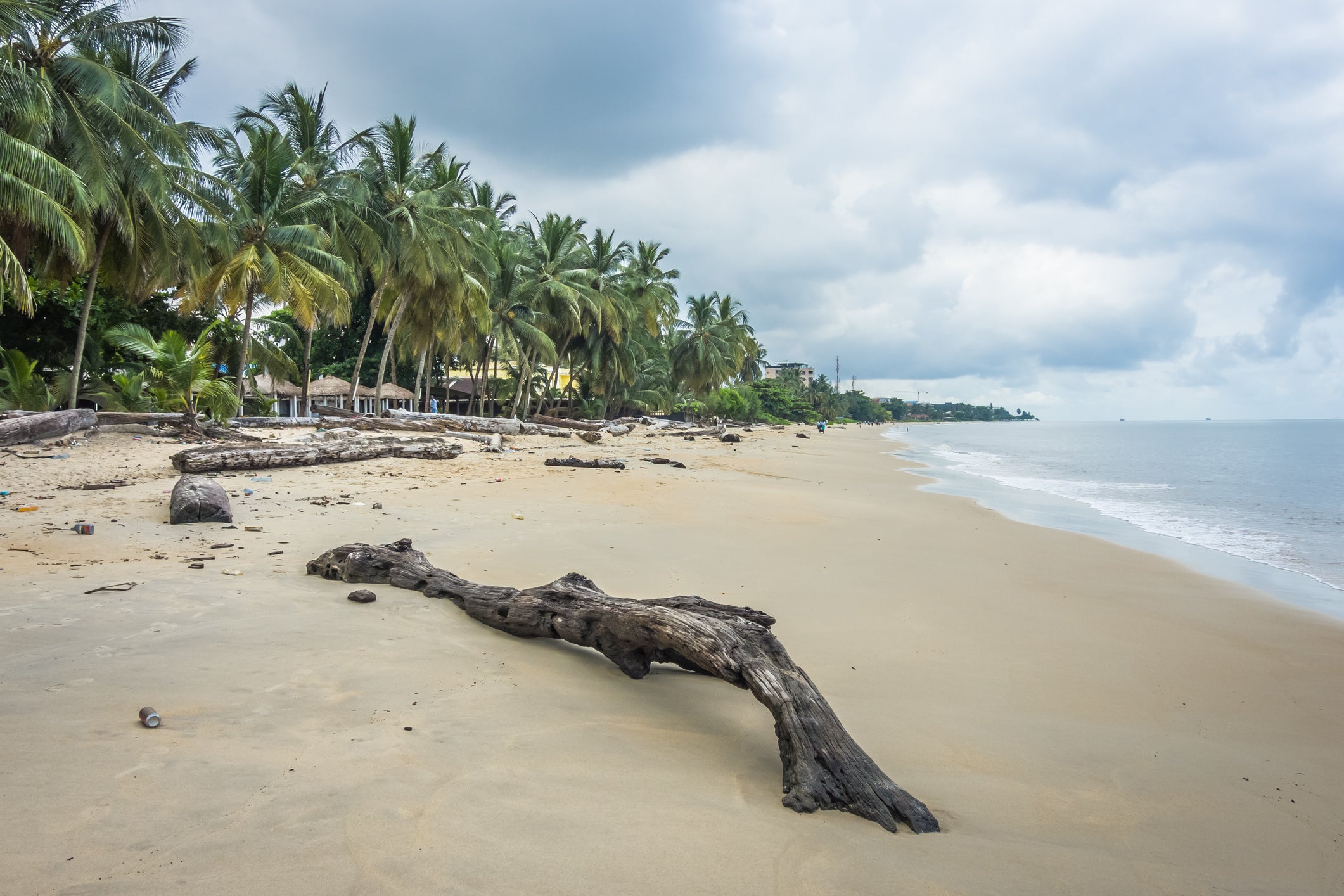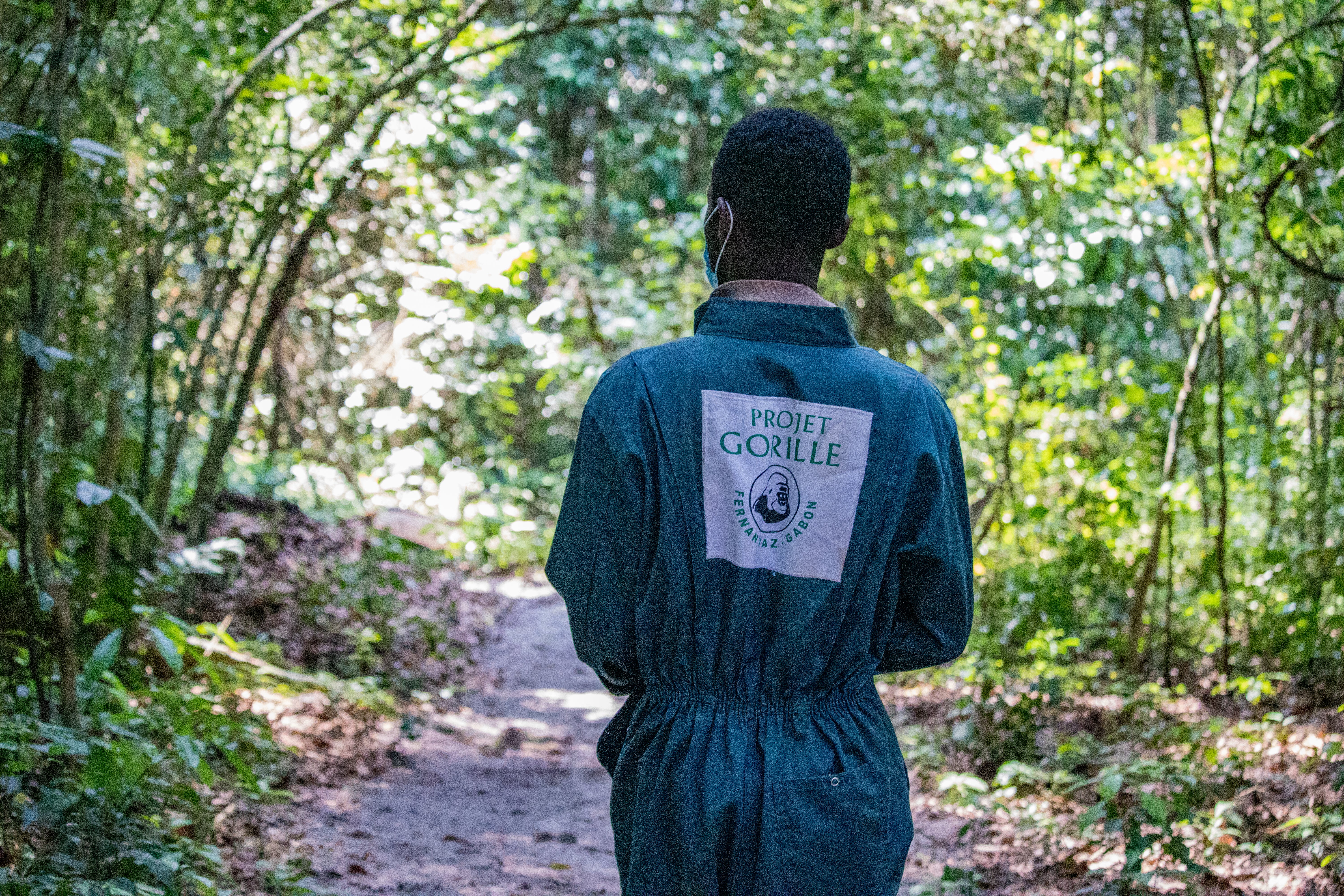Welcome to ‘The Last Eden’: Will Gabon become Africa’s new ecotourism hotspot?
This west Africa country is home to rich equatorial rainforest and incredible wildlife, just waiting to be discovered by a new wave of intrepid visitors. But, Portia Jones asks: is Gabon ready to become a mass tourism destination?

Elephants may be closer than they appear. That was my first lesson of forest lore in Gabon, as a one-tusked creature slowly shuffled towards me.
“His name is Emile,” explained Ghislain Bouassa – one of the first local guides to be trained after the creation of Gabon’s national parks network in 2002. “He’s on his own quite a lot,” he added, pointing at Emile’s damaged foot. The injury was slowing down the six-tonne animal.
On foot in the muggy Pongara National Park and clutching my increasingly moist camera, I’m frankly closer to the ambling Emile than I would like to be, but Ghislain was unfazed.
Lonely Emile is one of the estimated 95,000 forest elephants in Gabon. Pongara is a short boat ride away from the capital, Libreville, and is a place where humid tropical forests and lush mangroves provide refuge for endangered wildlife.
Here, adventurous tourists can observe elephants, buffaloes, gorillas and chimpanzees as part of the country’s burgeoning tourism efforts. Gabon’s officials see massive potential for ecotourism in these tree-laden lands, and they have big plans to increase visitor numbers.
“Our objective in the next five to seven years is to become one of the major tourist destinations,” says John Norbert Diramba, minister of tourism.

“We’ve realised that besides oil and mining, we can develop tourism, and we want to reach our potential of 500,000 tourists per year – so yes, we are banking a lot on ecotourism.”
But is Gabon ready to become a mass tourism destination?
The country’s president, Ali Bongo Ondimba, recently led a rebrand of Gabon’s tourism offering, and it now bills itself as “The Last Eden”: an ambitious nod to its vast natural beauty.
Read more on Africa travel:
The government’s strategy to promote conservation and develop a strong ecotourism product puts the country’s 13 national parks at its heart. According to Oxford Business Group, a research and consultancy firm, plentiful wildlife and protected landscapes could generate Gabon an estimated annual ecotourism turnover of $42m (£33.8m) by 2025.
And with their emphasis on wildlife at the crux of the project, Gabon’s National Parks Agency hopes to follow in the footsteps of success stories in Rwanda and Uganda. Mountain gorillas were almost extinct in these central African countries before increased tourism revenue, together with heightened protection, helped double their numbers to a population of more than 1,000 individuals in three decades.
Gabon currently has only one family of around 10 habituated gorillas in the Loango National Park, where trekking permits for visitors are around $900 (£725) – less than the permits in Rwanda or Uganda.
But Gabon certainly has its obstacles. Package tours for safaris and sightseeing still need to be developed. All-inclusive private trekking and safari tours are currently advertised online at around $7,000 to $10,000 (£5,635 to £8,050).

There’s scope to cater to moneyed travellers and rainforest tourists, with expansive savannah grasslands, swamps filled with hippos, misty marshes and mangroves – ripe for careful wildlife management and ecotourism.
In Gabon’s seafront capital, Libreville, I met with Alexis Chrisafis, director of conservation investment at the Space for Giants charity. “The vision is that Gabon becomes the world’s premier destination for African rainforests, tourism and a model for 21st-century parks,” he said. “We’re trying to ensure that the government, citizens, NGOs, private investors and other partners work together to build the physical and social infrastructure and institutions necessary to host a high volume of tourists.”
Chrisafis acknowledges that there are challenges for Gabon, especially in terms of infrastructure, marketing, aviation, high-quality experiences and the expertise of local guides.
“We’re aware that the tourism industry is obviously quite limited. But I think these things will come in time once we address certain issues.”
The limitations can be keenly felt when visiting. Tourism has traditionally taken a back seat in favour of petroleum, agriculture and mining industries. Less-than-impressive infrastructure is unavoidable: Roads are generally poor, air transport costs are high, and sightseeing tours are scarce. The limited lodges in the parks don’t have well-developed tourist facilities, and are expensive relative to other African safari destinations. There’s a long road ahead.
Our objective in the next five to seven years is to become one of the major tourist destinations
However, there are several preservation and biodiversity success stories to be found in Gabon, such as the Projet Gorille sanctuary.
Established in 2001 and located in the Loango coastal forest region of south-western Gabon, this non-profit rehabilitation centre is home to orphaned western lowland gorillas rescued from poachers and the illegal wildlife trade – whereby gorillas are captured and sold as pets.
A small team of local caretakers monitors the health and behaviour of the rescued and rehabilitated gorillas to ensure their continued safety and development.
“We take a holistic approach to conservation," says Dr Nicholas Bachand, the director of Projet Gorille. “We have to take into consideration the protection and conservation of these animals, as well as the wellbeing of the surrounding communities.”
Human-elephant conflict, meanwhile, poses a severe problem in Gabon for local livelihoods and for ongoing elephant conservation. Wildlife damage is the price local people pay for coexisting with animals, as large creatures can cause massive damage to crops.

Projet Gorille and other organisations run awareness campaigns in an effort to foster a sense of environmental guardianship among nearby communities. They also strive to give financial incentives by providing employment in conservation activities, and by buying food for the animals from local farmers.
“If we don’t take care of the communities, we leave them stranded in extreme poverty", says Dr Bachand. “It will always result in them thinking, ‘why are we going to suffer when we have animals that we can kill or sell?’”
Later, as I watched the free-roaming gorillas wade waist-deep into the Fernan Vaz Lagoon, I realised that donation-reliant projects like this would most benefit from increased tourism and visibility. Nothing will make you hit up a GoFundMe quicker than seeing a rescued gorilla taking a leisurely afternoon bath while devouring a banana whole.
Beyond big tourism bucks, there’s a more pressing reason why we should all be concerned with preserving the world’s second-most forested country.
“We have to be conscious of the fact that if we don’t do it, then everybody’s f***ed,” warns Lorris Bithougat, the country coordinator for Zebek, a strategy and communications consultancy working with Gabonese authorities to bolster tourism and media relations.
“The Congo Basin is now the world’s main lungs because the Amazon is in trouble... and it’s important for everybody around here to understand that.”
Bithougat believes this critical realisation can help Gabon and its neighbours develop a better path towards developed – and sustainable – ecotourism.
“We were not born the best in what we’re doing, but we ended up being a champion of conservation. So, if we can do it, I believe everybody else can.”
Travel essentials
Getting there
Air France flies from London Heathrow to Libreville, Gabon, via Paris Charles de Gaulle.
Staying there
Rooms at Complexe Hôtelier de la Sablière, in Libreville, from £102.
Luxury Green Resorts in Pongara and Loango National Parks, prices vary.
Read about our expert-led trips






Join our commenting forum
Join thought-provoking conversations, follow other Independent readers and see their replies
Comments